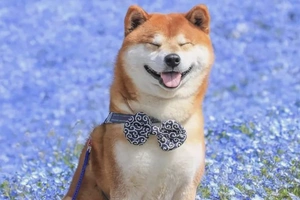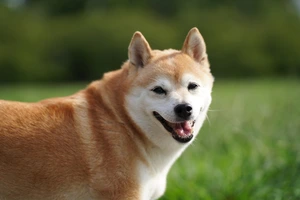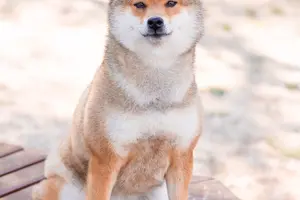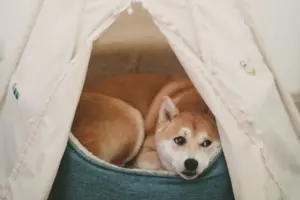
Shiba Inus are beloved pets known for their loyalty, intelligence, and playful personalities. However, like any other breed of dog, they are susceptible to becoming overweight or obese if not properly cared for. In fact, according to a study by the Association for Pet Obesity Prevention, roughly 56% of dogs in the United States are overweight or obese.
Maintaining a healthy weight is crucial for the overall health and well-being of your Shiba Inu. In this article, we will explore the common causes of excess weight in Shiba Inus and provide solutions for managing their weight through proper nutrition, exercise, and other strategies. By following these tips, you can help your furry friend live a longer, healthier life.
Causes of Excess Weight in Shiba Inus
There are several reasons why Shiba Inus may become overweight or obese. One of the most common causes is overfeeding. Many pet owners tend to give their dogs more food than they actually need, which can lead to excessive weight gain. Additionally, feeding your Shiba Inu table scraps or high-calorie treats can also contribute to weight gain.
Another common cause of excess weight in Shiba Inus is a lack of exercise. These dogs are active and athletic by nature, so it’s important to provide them with plenty of opportunities to run, play, and explore. Without adequate exercise, they may become sedentary and gain weight.
Certain health conditions can also contribute to weight gain in Shiba Inus. For example, hypothyroidism, a condition in which the thyroid gland doesn’t produce enough hormones, can slow down their metabolism and lead to weight gain. Additionally, some medications and medical treatments may cause weight gain as a side effect.
By understanding these common causes of excess weight in Shiba Inus, you can take steps to prevent weight gain and maintain a healthy weight for your furry friend.
Understanding Your Shiba Inu’s Nutritional Needs
Proper nutrition is essential for maintaining a healthy weight in Shiba Inus. When choosing food for your furry friend, it’s important to consider their age, weight, activity level, and any health conditions they may have.
Shiba Inus require a well-balanced diet that includes high-quality protein, fat, and carbohydrates. Look for dog food that lists meat as the first ingredient and avoid foods that contain fillers or by-products. Additionally, consider feeding your Shiba Inu a food that is specifically designed for their breed size, as this will help ensure that they receive the proper nutrients they need.
It’s also important to pay attention to portion sizes. Overfeeding your Shiba Inu can lead to excess weight gain, so be sure to measure out their food and avoid free-feeding. Feeding your dog multiple small meals throughout the day can also help prevent overeating and promote a healthy weight.
Overall, understanding your Shiba Inu’s nutritional needs is crucial for maintaining their health and preventing weight gain. Consult with your veterinarian if you have any questions or concerns about your dog’s diet.
How Much Should You Feed Your Shiba Inu?
Determining the right amount of food to give your Shiba Inu can be a bit tricky, as it depends on several factors such as their age, weight, and activity level. As a general rule, adult Shiba Inus should be fed 1-1.5 cups of high-quality dog food per day, divided into two meals.
However, it’s important to adjust the amount of food you give your Shiba Inu based on their individual needs. If your dog is particularly active or has a high metabolism, they may require more food to maintain a healthy weight. On the other hand, if your dog is less active or has a slower metabolism, they may require less food.
To determine the right amount of food for your Shiba Inu, consult with your veterinarian. They can help you calculate your dog’s daily caloric needs and recommend a feeding plan that is tailored to their individual needs. Additionally, be sure to measure out their food using a measuring cup or scale to ensure that you are providing the right amount.
By properly measuring and adjusting your Shiba Inu’s food intake, you can help prevent overfeeding and promote a healthy weight.
The Importance of Exercise
Regular exercise is crucial for maintaining a healthy weight in Shiba Inus. These dogs are active and energetic by nature, so they require plenty of opportunities to run, play, and explore. However, it’s important to tailor their exercise routine to their individual needs.
For example, adult Shiba Inus should get at least 30 minutes of exercise per day, while puppies may require more. Activities like going for walks, playing fetch, and participating in dog sports can all help keep your Shiba Inu active and healthy.
In addition to helping maintain a healthy weight, exercise has many other benefits for Shiba Inus. It can help prevent health problems like diabetes, heart disease, and joint problems. Additionally, it can help keep your dog mentally stimulated and prevent behavioral issues like destructive chewing or barking.
Overall, it’s important to make exercise a regular part of your Shiba Inu’s routine. Consult with your veterinarian if you have any questions or concerns about your dog’s exercise needs.
Other Solutions for Managing Your Shiba Inu’s Weight
In addition to proper nutrition and exercise, there are other strategies you can use to help manage your Shiba Inu’s weight. Here are a few tips:
-
Reduce treats: While treats can be a great way to reward your Shiba Inu, they can also contribute to excess weight gain. Try to limit treats to no more than 10% of your dog’s daily caloric intake, and choose low-calorie options like small pieces of cooked chicken or carrots.
-
Use puzzle toys: Puzzle toys and treat dispensers can help keep your Shiba Inu mentally stimulated and prevent overeating. These toys require your dog to work for their food, which can help slow down their eating and prevent them from overeating.
-
Seek veterinary care: If your Shiba Inu is overweight or obese, it’s important to seek veterinary care. Your veterinarian can help you develop a weight loss plan tailored to your dog’s individual needs. Additionally, they can help identify and treat any underlying health conditions that may be contributing to weight gain.
By using these strategies in conjunction with proper nutrition and exercise, you can help your Shiba Inu maintain a healthy weight and live a long, healthy life.
The Risks of Obesity in Shiba Inus
Obesity can have serious consequences for the health and well-being of your Shiba Inu. In addition to being at risk for chronic conditions like diabetes, heart disease, and joint problems, overweight dogs may also have a shorter lifespan.
Some of the common health risks associated with obesity in Shiba Inus include:
-
Increased risk of diabetes: Obesity can make it more difficult for your dog’s body to regulate their blood sugar levels, which can lead to diabetes.
-
Heart disease: Excess weight can put strain on your dog’s heart, leading to conditions like high blood pressure and heart disease.
-
Joint problems: Carrying excess weight can put additional stress on your dog’s joints, leading to conditions like arthritis and hip dysplasia.
-
Respiratory problems: Obesity can also make it more difficult for your dog to breathe, leading to respiratory problems like shortness of breath and wheezing.
Overall, it’s important to take steps to prevent obesity in your Shiba Inu and maintain a healthy weight. By providing proper nutrition, regular exercise, and other strategies for weight management, you can help your furry friend live a happy, healthy life.
Maintaining a healthy weight is crucial for the overall health and well-being of your Shiba Inu. By understanding the common causes of excess weight gain and implementing strategies for weight management, you can help your furry friend live a longer, healthier life.
Remember to provide your Shiba Inu with a well-balanced diet that includes high-quality protein, fat, and carbohydrates, and pay attention to portion sizes to prevent overfeeding. Regular exercise is also important for maintaining a healthy weight and preventing health problems.
In addition to proper nutrition and exercise, there are other strategies you can use to help manage your Shiba Inu’s weight, such as reducing treats and using puzzle toys. Consult with your veterinarian if you have any questions or concerns about your dog’s weight.
By taking proactive steps to prevent obesity in your Shiba Inu, you can help ensure that they lead a happy, healthy life.




